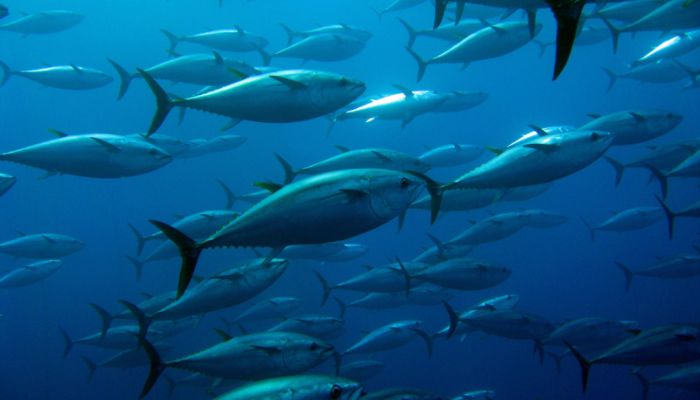Oceans of Optimism
Happy Headlines from the Oceans
December has sprung upon us, and with it, another Oceans of Optimism! Looking back on a whirlwind year, and forward to Christmas can be a rather hectic time of year. But, whether you’re ready to jingle all the way or would rather keep it lowkey, we’ve got some happy headlines to bring some cheer (festive or not) to your day. So keep scrolling for our roundup of positive ocean-related news that the last month had to offer! Merry reading – and here’s to a ho-ho-hopeful 2023!

Tuna booster
A study has reported that the huge marine reserve, Papahānaumokuākea Marine National Monument in Hawaii, has led to the recovery of tuna and other fish species around its borders. Although fishing is banned in the Marine reserve, “the happy accident”, described by Professor John Lynham, has happened outside of the zone, due to the positive impacts that the reserve is having on marine life and their behaviours. The Marine reserve’s primary goal is to protect biodiversity and culturally important areas, but this a welcome spill over and it is hoped that the findings from this study will encourage the uptake of more marine protected areas, that are vital to the safeguarding of our oceans as they prove to have not only environmental but also economic and social benefits.
Smart art
These creatively clever sculptures are protecting the seabeds of Talamone. Weighted trawlers are dangerous to fish stocks and destroy seagrass beds which are vital to ocean biodiversity and capturing carbon. However, 39 sculptures made of marble are helping to put this unsustainable fishing to (sea)bed. Casa dei Pesci—the home of the fish—is a unique underwater art gallery that protects both the local ecosystem and the wider environment. The sculptures are carved by international leading artists and are arranged in such a way that they would snag the nets of any trawler that tried to encroach on this zone. The project was founded in 2015 by fisherman Paolo Fanciulli, who didn’t just want to take from the oceans without giving back. What a catch!

Sea is good for me
A new study found that adults with better mental health are more likely to have spent time in or around coastal and inland waters as kids. Researchers found that individuals who recalled more experiences in childhood around blue spaces tended to place greater value on natural settings in general and still visit blue spaces as adults, resulting in better mental well-being in adulthood. We see this as another reason why protecting our oceans and rivers is so important- not just for the planet’s health but for our own!
What’s the ban stan?
A variety of single-use plastic, including straws, cutlery and microbeads in shampoo, will be banned in New South Wales in the hope of reducing plastic pollution. “Australia has been very active over the last few years in moving to ban single-use plastics. We now have bans in place in over half of Australia’s states and territories,” says Shane Cucow, the plastics campaign manager at the Australian Marine Conservation Society. This is great progress for Australia, considering that if you rewind two years ago, not a single state or territory had banned single-use plastics. We hope this promises a bright future which embraces reuse infrastructure down under!

Happy feet
The Galapagos Islands are home to the world’s most northerly-dwelling penguin. Populations have suffered due to the increase of invasive species like feral cats, but the determined conservation efforts are seeing their numbers rebound. Penguin expert and biologist P. Dee Boersma has been using machinery to cut new burrows for the penguins into the black rock of the other islands where the danger of introduced predators is either less-severe or non-existent. Meaning the penguins now have a place that is safe to call home and to rear their young.
Sharks tale
Major steps have been taken to address the overfishing and lack of regulation that has been endangering sharks to extinction. Countries at the world’s biggest wildlife summit have voted for the first time to regulate the trade that kills millions of sharks every year. Cites, voted to limit or regulate the commercial trade in the most targeted shark species in the fin trade, including tiger, bull and blue sharks. Six small hammerhead shark species were also listed for protection, along with 37 types of guitarfish, which are shark-like rays. This is fin-tastic news and a step in the right direction for the protection of our gilled friends!

DONATE TO CITY TO SEA’S CAMPAIGNS
Refill is a City to Sea Campaign. At City to Sea our vision is a world where everyone connects their actions to our oceans, so all life can thrive. Oceans and waterways around the world urgently need our help and we’re hugely grateful to our supporters for donating to City to Sea. Our donations go directly to our campaigns, powering on-the-ground community action, lobbying governments and creating powerful, playful content designed to inspire change.

